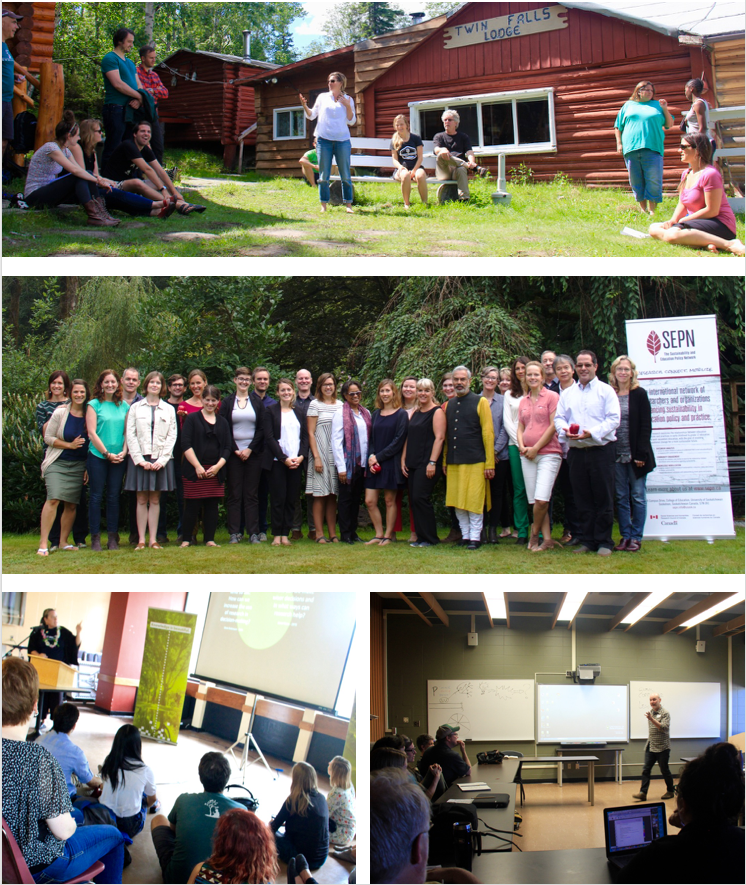Given mounting public support for mitigating the effects of climate change, education sectors in nations throughout the world will be increasingly expected to align policy to address sustainability challenges.
SEPN’s work has value for a variety of stakeholders including policy makers and decision makers; individuals and organizations working to improve uptake of sustainability in education policy and practice; and researchers working in the fields of sustainability and environmental education, climate change education, and educational policy.


Policy Makers and Policy Analysts
SEPN aims to provide concrete tools that can be readily used by policy makers. SEPN’s research, and the Network itself, can be used as a resource to:
- Inform the development of research-based sustainability policies, plans, and initiatives
- Support evidence-based decision-making, regionally, nationally, and internationally
- Act as a toolkit for monitoring and evaluating sustainability initiatives
- Facilitate discussions amongst educational stakeholders, policy makers, and researchers to foster integrated partnerships
- Improve public awareness about sustainability initiatives occurring in different schools, school divisions, ministries, and institutions
Sustainability Actors
Sustainability uptake in the education system often comes from the ground, with initiatives that are spearheaded by students, educators, staff, and administrators at all levels. Individuals involved and interested in sustainability can use SEPN’s research findings to:
- Identify policy and/or practice initiatives to improve sustainability uptake in their schools and institutions
- Provide policy makers and decision makers with evidence to improve accountability towards sustainability goals
![]()
Researchers
The UN’s Sustainable Development Goals (2015-2030), UNESCO’s Global Action Programme on ESD (GAP, 2015), and the UN’s 21st Conference of the Parties meetings (COP21) all include calls to address sustainability issues in education policy innovations in Canada and internationally. To date there has been minimal empirical research focused on understanding and enhancing such policy innovations. SEPN is the exception. Our ambitious large-scale research program began with our flagship project, SEPN-Canada, and has since expanded to other national and international contexts. Our approach includes:
- A methodological toolkit with a core set of methods which can be adapted to local contexts
- Common data collection processes to enable comparative research, regionally, nationally, and internationally
- The ability to act as a toolkit for monitoring and evaluation of sustainability uptake, including in relation to the SDGs and GAP priorities
- Community development via dynamic, two-way policy maker-researcher collaboration
- The integration of Indigenous perspectives and considerations throughout the research
- Innovative postgraduate training models


